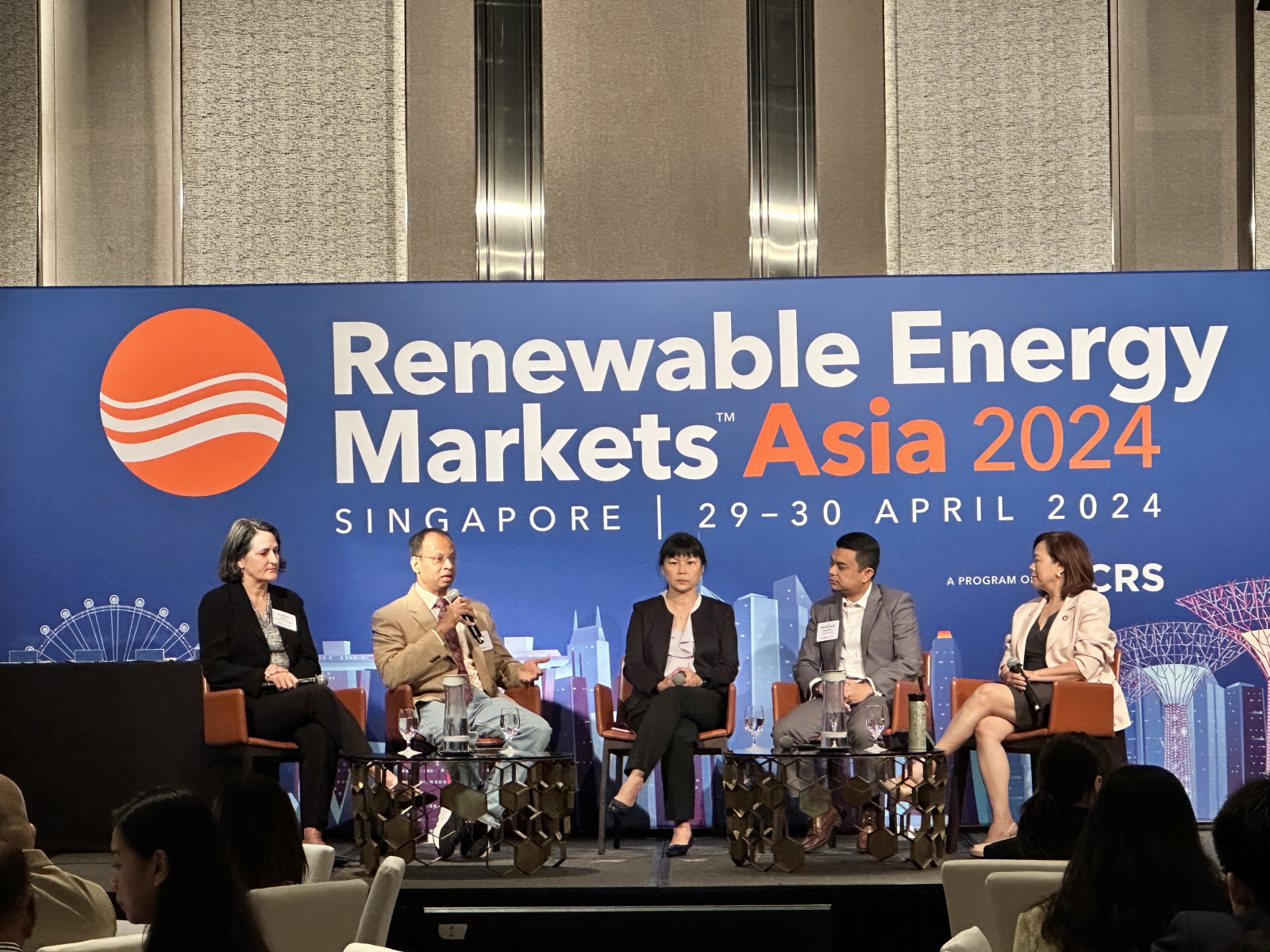The Renewable Energy Markets Asia 2024 (REM Asia) kicked off in Singapore on April 29, exploring the impact of global initiatives and policies on the industry.
The two-day event invited industry experts to share insights of the industry and supply chain, featuring panels discussing the development of renewable energy markets in Singapore, Vietnam, Japan, South Korea, and China.

REM Asia invites experts to discuss the development of green energy markets in Asia. (Photo: Lin Bo-yu)
Google's supply chain is like the ecosystem of the semiconductor industry, with huge demand for electricity and an interconnected, interdependent chain that highlights the complexity of its carbon reduction efforts, said Giorgio Fortunato, Google's head of clean energy and power for the Asia-Pacific region.
However, a complex industry chain does not always trigger a domino effect for carbon reduction, he said, adding that this is why Google's supply chain carbon reduction focuses on ensuring supplier participation, fostering capability building, and co-creating or co-joining initiatives to help suppliers achieve their goals and make an impact.
Google aims to transition to using carbon-free energy around the clock by 2030, contributing to its own decarbonization and that of the power grid, a goal pioneering in the industry.
Meta also promotes carbon reduction throughout its supply chain in a similar manner.
Hemant Naidu, Meta's head of energy, emphasized the necessity of government policy support for corporate carbon reduction and green energy procurement.
Meta is actively working in alliance with global partners in the hope of to providing advice for relevant regulatory frameworks, he said.
E Ink, a Taiwan-based e-paper manufacturer committed to use 100% renewable energy by 2030, shared its experience of sustainability from a supplier perspective.
The company's CTO Ian French noted the significant growth in domestic and international regulations and policies and the efforts of international initiatives and industry alliances in recent years, which has necessitated the R&D department under his leadership to focus on energy efficiency.
Vietnam has made significant progress in policy development, including the release of the eighth edition of the National Power Development Plan (PDP8), a draft direct power purchase agreement (DPPA) mechanism, and a draft regulation on rooftop solar, which is expected to be finalized in the next few weeks and support the development of the renewable energy market in the country, according to Jeniffer Leisch, Deloitte's director of advanced energy systems in Vietnam.
She believes that after the boom in Vietnam's renewable energy certificate market since 2022, its development requires further monitoring due to changes in policy direction and regulatory environment.
Patricia Latini, deputy general manager of Schneider Electric's sustainability business division, said that the Vietnamese market still faces many challenges, including a concentrated and monopolistic electricity market, lack of clear pricing mechanisms, inadequate grid systems, and limited banking financing and lending capabilities.
Experts from CnerG, a green energy trading platforms and solutions provider, and the non-governmental organization Solutions for Our Climate, believed that the South Korean government's climate targets are too conservative, which may affect the energy transition process and hinder the development of the renewable energy industry.



